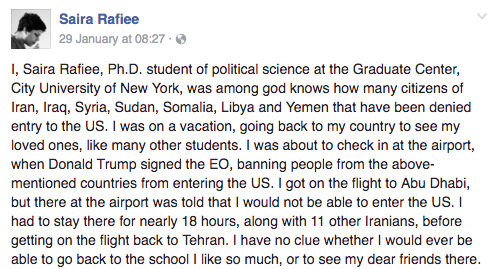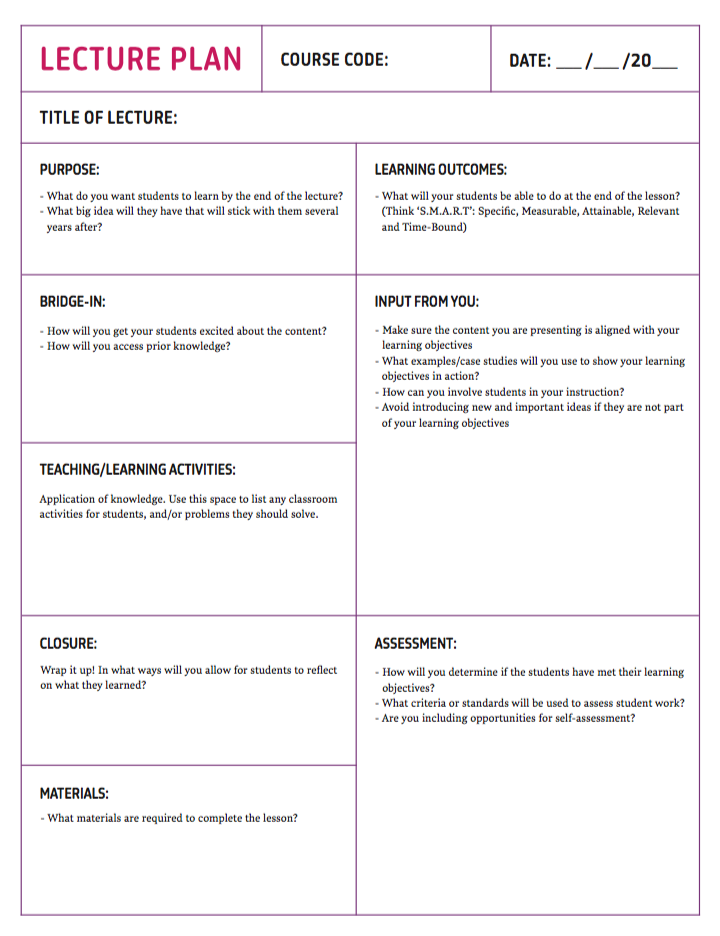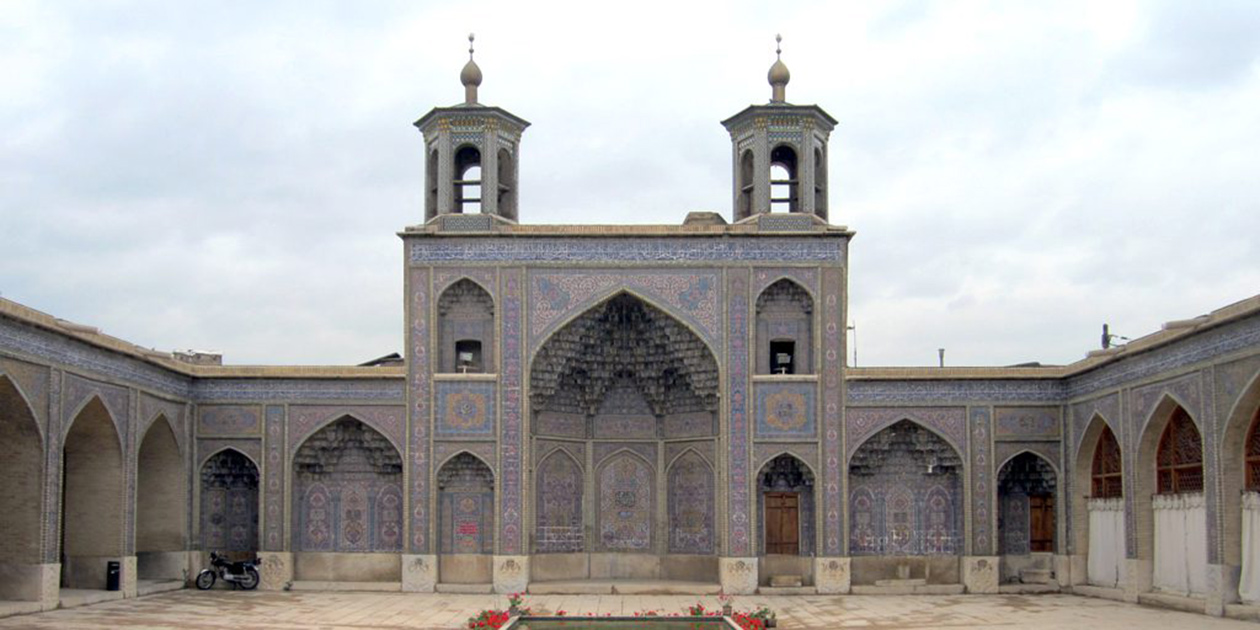After a federal judge stayed President Trump’s travel ban blocking entry from several Muslim-majority countries, including Iran, some students stranded abroad have now returned to the U.S.
The Chronicle reports that CUNY student Saira Rafiee, denied entry to the U.S after visiting family in Iran, was able to return on Saturday night. She became the face of the executive order’s impact on students after writing a viral Facebook post:

University of Massachusetts Amherst graduate student Mohsen Hosseini was personally greeted by university officials at Boston Logan airport, after being originally refused re-entry to the U.S. when he visited Iran to get married. Iranian MIT junior Niki Mossafer Rahmati was denied boarding her connecting flight in Qatar, so Senator Elizabeth Warren raised her case, and she was able to return at the end of last week.
However, issues remain for starting students and for those who never left the country. Private research university George Washington has offered to delay entry for one new Iranian graduate student unable to enter the U.S.
Fardin Ghooli, an Iranian doctoral student at the University of Illinois at Urbana-Champaign, explains that any Iranian applying for a U.S. student visa needs to travel to a third country, because there is no consular relationship between Iran and the U.S. In fact, prospective students often need to travel twice: first for an interview, a second time to pick up the visa in person.
Ghooli says that the terms of this visa means he has to stay in the U.S. “As a Ph.D. student with at least five years of school ahead, my visa was valid only for three months and one entry. Going back home to visit my family means that I have to risk losing my career and all I have built so far.”
‘A stunning violation’
A total of 12,000 Iranians studied in the United States in 2015–6, according to the Chronicle of Higher Education. There are long-standing academic ties between Iran and the U.S., and STEM is heavily represented, including in biotechnology at Harvard where 20 of the 100 researchers in one lab are Iranian.
One of them, Saghi Saghazadeh, told CBC News: “Do I want to be at a kick-ass scientific place but not feel welcome in the country, or do I want to be with family and feel safe? That’s the question I am asking myself.”
MIT President L. Rafael Reif, who was born in Venezuela, called the executive order “a stunning violation of our deepest American values, the values of a nation of immigrants: fairness, equality, openness, generosity, courage.”
The ACLU of Massachusetts has filed a lawsuit asking for a full repeal of the travel ban. MIT is one of eight Massachusetts universities that filed an amicus brief in favour of the case for repeal.
Law academics say the Supreme Court will likely have the final say on whether the order stays.

Free Teaching Tools


